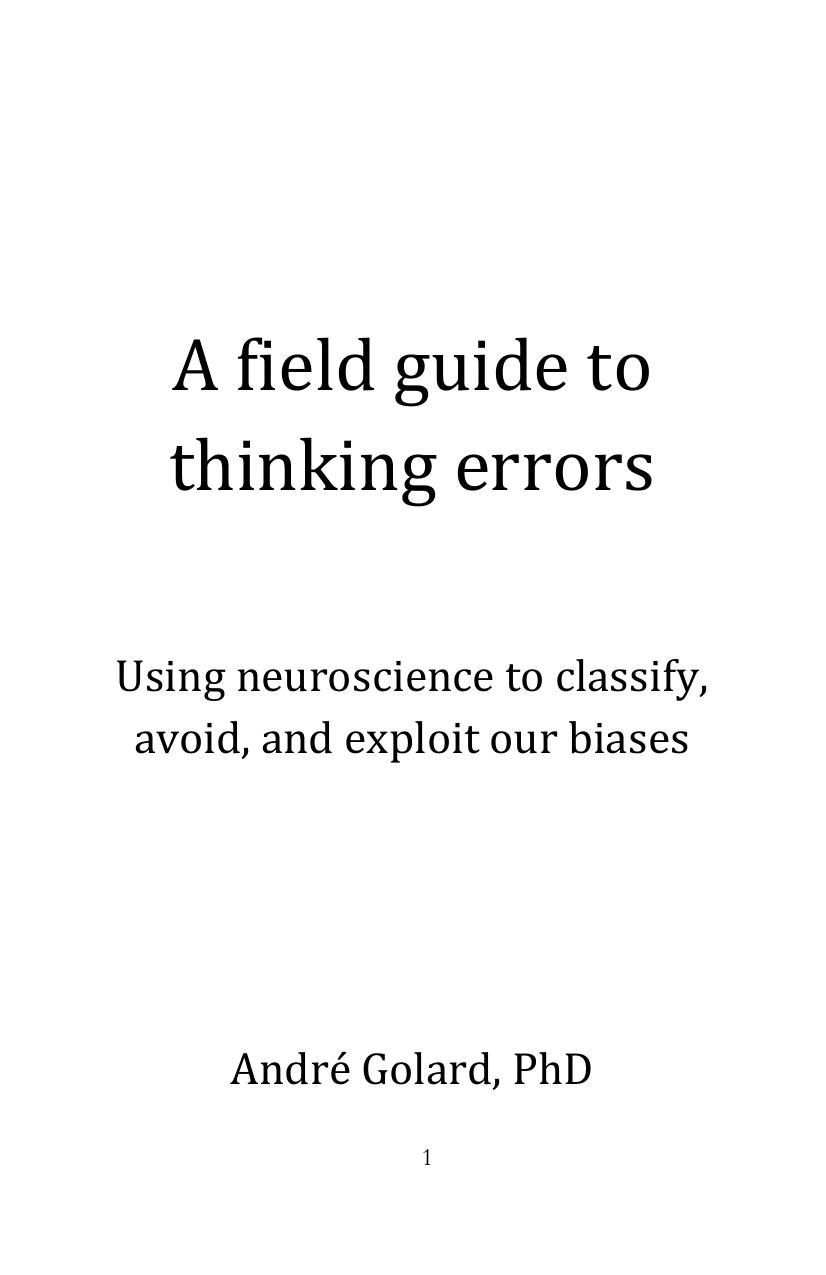
A field guide to thinking errors: Using neuroscience to classify, avoid, and exploit our biases PDF
Preview A field guide to thinking errors: Using neuroscience to classify, avoid, and exploit our biases
Do you know anyone who would benefit from making fewer mistakes? Do you wish you could help them? One goal of this book is to give people a vocabulary to discuss thinking errors. Your errors are not your flaws as much as they are flaws we all share.
The second goal of this book is to help you identify errors you are prone to, and give you tools to counter them.
The final, short section aims to classify errors based on the brain circuits involved. Once errors are grouped we can look for common solutions and applications. Applications do not have to be negative. For example, choices can be structured to help you save more. If an application is negative, knowing about it can help you see when you are being played.
Reading this will benefit the people who read it. It will be especially beneficial if others in your circle read it as well.
